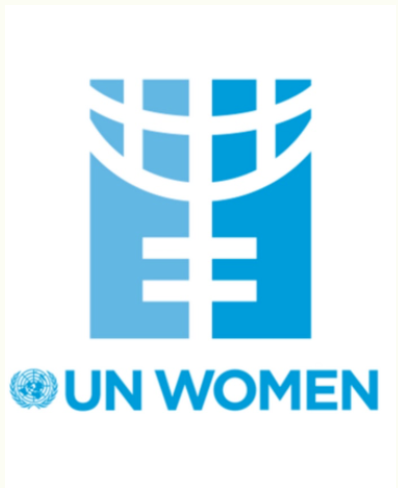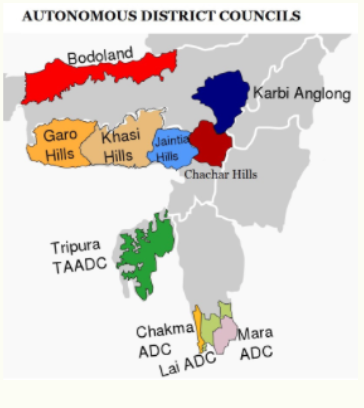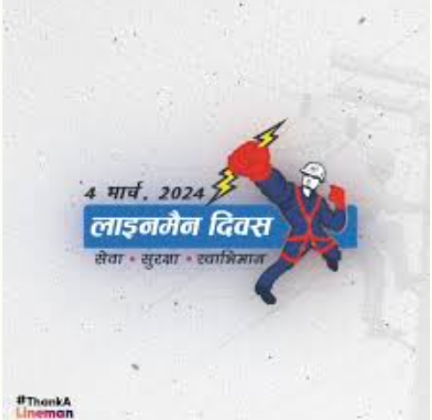Daily Current Affairs | March 7 2025 |
Important Topics from Current Affairs : 1) MeitY Launches AI Kosha 2) Gender Equality Report by UN Women 3) Compensatory Afforestation (CAMPA) 4) Autonomous District Councils 5) 5th Lineman Diwas by CEA
Jumbo IAS
3/7/20255 min read
1) MeitY Launches AI Kosha
Ministry of Electronics and IT (MeitY) has launched AI Kosha under India AI mission to democratize AI access, enhance AI competency in governance, and support AI startups and research.
AI Kosha, India AI Compute Portal and other initiatives were launched on India AI’s anniversary (March 6).


About AI Kosha
It is a centralised repository of datasets, AI models and AI tools for research and innovation in AI.
The platform contains 316 datasets, along with AI models and Integrated Development Environment (AI Sandbox).
India AI Datasets Platform is one of the 7 key pillars of India AI Mission, a Rs 10,370 crore mission launched by government last year.
Benefits
Democratisation of AI Development - Provides high-quality datasets and pre-trained models, which can be used by startups, researchers, and enterprises to develop AI solutions with real-world data.
Promotes Ethical AI Development - These datasets are ethically sourced with proper consent, ensuring responsible AI development without jeopardising Data Privacy.
AI in Governance - Through this AI solutions can be generated for governance, healthcare, and education.
What More Can be Done ?
These initial datasets on AI Kosha are sourced from government and research institutions, reducing availability of real-world commercial data.
This can limit the quality of AI applications that can come out of it.
2) Gender Equality Report by UN Women
30 years after world leaders adopted a historic blueprint to achieve gender equality(Beijing Declaration 1995), a new United Nations report says women's and girls' rights are under attack and gender discrimination remains deep.
UN Women said a woman or girl is killed every 10 minutes by a partner or family member.


Beijing Declaration
The Beijing Declaration and Platform for Action, adopted at the 4th World Conference on Women in 1995, is a landmark document outlining a global agenda for achieving gender equality and empowering women and girls, focusing on 12 critical areas of concern.
Adopted by 189 countries.
The 12 critical areas include, combating poverty and gender-based violence & putting women at top levels in business, government & at peacemaking tables.
UN Women Report
This report includes contributions from 159 countries.
This report was released ahead of International Women’s Day on March 8.
It reported that in cases of conflict- related sexual violence have increased by 50% since 2022.
25% of countries reported that backlash on gender equality is hampering implementation of Beijing Declaration.
Some Positive News :
88% countries have passed laws to combat Gender violence
44% are improving quality of education & training for women.
Solutions Proposed - Digital revolution to provide equal access to technology for women; Investments in social protection like healthcare & education for women; Zero violence; equal decision making power; and gender-responsive humanitarian aid in conflicts.
3) Compensatory Afforestation (CAMPA)
The Supreme Court took exception to the alleged misuse of the Compensatory Afforestation Fund Management and Planning Authority (CAMPA) funds by the Uttarakhand government.
According to a report of the Comptroller and Auditor General (CAG), CAMPA funds, meant for afforestation, were allegedly used towards inadmissible expenditures.


About CAMPA
A statutory authority under Compensatory Afforestation Fund Act, 2016, to manage & utilise funds for compensatory afforestation.
Establishes two funds, one at national level, the other at state level.
The National Compensatory Fund receives 10% funding & comes under Public Account of India. The remaining 90% funds go to State Compensatory Fund.
Other Facts About CAMPA
CAMPA ensures that funds, collected from user agencies for compensatory afforestation, are released and utilised quickly, efficiently, and transparently.
These funds are generated to address the environmental impact of forest land diversion for non-forest purposes, such as mining or industrial projects, by ensuring that the loss of forest cover is compensated through afforestation and other conservation efforts.
The establishment of CAMPA was ordered by the Supreme Court of India in 2001.
Fund Usage - The funds are primarily used for afforestation, regeneration of forest ecosystems, wildlife protection, and infrastructure development.
Audits of fund usage done by CAG.
4) Autonomous District Councils
Assam Assembly passed amendment Bills related to seven autonomous councils, authorising governor to take over these bodies if holding of elections is found to be "impractical" even at the end of mandated extended term of the elected committees.
As per Assam Govt. there is a provision of extending the term of the elected councils for a maximum of one year.
The problem will arise if elections cannot be held even after the end of the extended period.


About ADCs
These are self governing bodies established as per 6th Schedule of the Constitution to provide some form of autonomy to tribal districts of Assam, Meghalaya, Mizoram & Tripura.
The councils have elected members (term = 5 yrs) and some Governor nominated members.
These ADCs have some legislative, executive & judicial powers to allow them to honour their tribal culture & customs in their respective regions.
Assam - North Cachar Hills, Karbi Anglong, and Bodoland Territorial Council.
Meghalaya has three autonomous district councils: Khasi Hills, Jaintia Hills, and Garo Hills.
Tripura has one autonomous district: North Tripura.
Mizoram - North Mizoram, South Mizoram, and East Mizoram.
Powers of ADCs
Legislative - Can make laws on land, forests, water resources, agriculture, public health, sanitation, and social customs.
Executive - Administer village councils, traditional chiefs, policing, inheritance laws, and local governance.
Judicial - Can establish tribal courts to handle disputes where both parties belong to Scheduled Tribes, provided the sentence is under five years of imprisonment.
Financial - Can levy some taxes, fees and tolls, but are mostly dependent on grants from State Governments.
The Governor has full authority to establish and reorganise autonomous district councils in the tribal areas of Assam, Meghalaya, Mizoram, and Tripura.
5) 5th Lineman Diwas by CEA
Central Electricity Authority (CEA), a statutory body under the Ministry of Power, in collaboration with Tata Power Delhi Distribution Ltd (Tata Power-DDL) today successfully organized the Fifth Edition of 'Lineman Diwas', in New Delhi.
The day is being celebrated in order to recognize the invaluable contributions of linemen and ground maintenance staff, the backbone of India's power sector.
The theme for the 5th edition of Lineman Diwas celebration was ‘Seva, Suraksha, Swabhiman’.


About CEA
A statutory authority established under Electricity Act 2003 and functions under Ministry of Power.
Composition - A Chairperson and members from technical & regulatory backgrounds.
Functions - Advise the government on electricity policy, technical standards, power sector planning, development & regulation.


